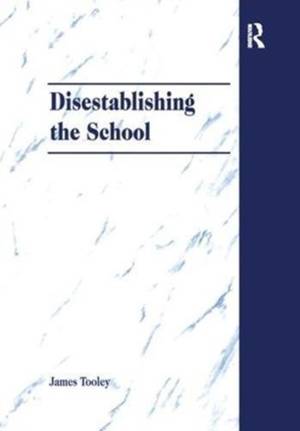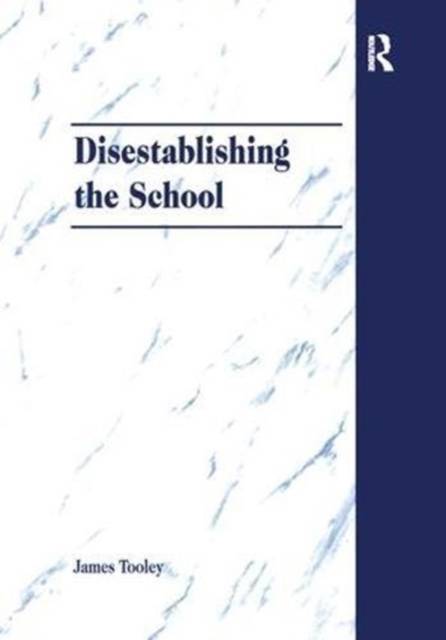
Door een staking bij bpost kan je online bestelling op dit moment iets langer onderweg zijn dan voorzien. Dringend iets nodig? Onze winkels ontvangen jou met open armen!
- Afhalen na 1 uur in een winkel met voorraad
- Gratis thuislevering in België vanaf € 30
- Ruim aanbod met 7 miljoen producten
Door een staking bij bpost kan je online bestelling op dit moment iets langer onderweg zijn dan voorzien. Dringend iets nodig? Onze winkels ontvangen jou met open armen!
- Afhalen na 1 uur in een winkel met voorraad
- Gratis thuislevering in België vanaf € 30
- Ruim aanbod met 7 miljoen producten
Zoeken
Disestablishing the School
De-Bunking Justifications for State Intervention in Education
James Tooley
Paperback | Engels
€ 39,45
+ 78 punten
Uitvoering
Omschrijving
That governments are, and will always be, involved in education, is taken for granted by the majority of educationalists. Recent market reforms are condemned, because they appear to undermine state intervention in education. But are justifications for state intervention in education philosophically sound? Is the attack on markets justified? In Disestablishing the School, Dr Tooley explores these issues, setting recent educational policy debates in the broader context of debates in moral and political philosophy, and philosophy of economics. Topical issues to do with equality of opportunity, education for democracy, education for autonomy, democratic control of the curriculum, and education as a public good are examined. None of these survive as a critique of markets in education, nor as a justification for state intervention in education. In undermining these arguments, Dr Tooley argues that the case for the disestablishment of the school, for the separation of school and state, can be philosophically sustained.
Specificaties
Betrokkenen
- Auteur(s):
- Uitgeverij:
Inhoud
- Aantal bladzijden:
- 172
- Taal:
- Engels
Eigenschappen
- Productcode (EAN):
- 9781138279223
- Verschijningsdatum:
- 28/07/2017
- Uitvoering:
- Paperback
- Formaat:
- Trade paperback (VS)
- Afmetingen:
- 152 mm x 229 mm
- Gewicht:
- 317 g

Alleen bij Standaard Boekhandel
+ 78 punten op je klantenkaart van Standaard Boekhandel
Beoordelingen
We publiceren alleen reviews die voldoen aan de voorwaarden voor reviews. Bekijk onze voorwaarden voor reviews.











